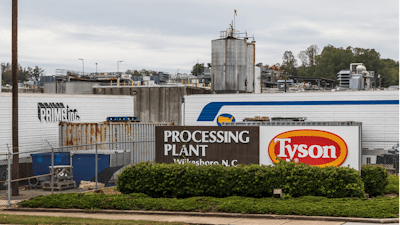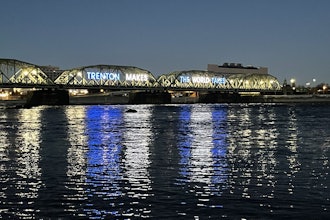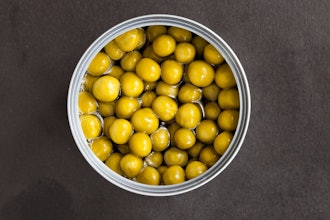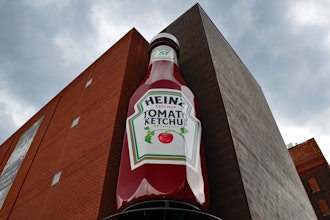
SPRINGDALE, AR — Tyson Foods announced plans Nov. 10 to build new production facilities in China and Thailand, and expand its facility in the Netherlands. The latest expansions, adding over 100,000 metric tons of fully cooked poultry capacity, build on the company’s global growth strategy to become the leader in protein by serving emerging markets and strategic customers.
“Global population and income growth will continue to drive an increased need for protein,” said Dean Banks, president and CEO of Tyson Foods. “These investments allow us to increase our in-country operations and global export capabilities, helping us bring more safe, high-quality protein for consumers in these countries as well as for customers in other parts of the world.”
The expansions are expected to create many direct and indirect jobs as production starts in local communities. The new plant in China is expected to create more than 700 jobs and the European expansion will add more than 150 jobs. Thailand’s new plant, part of a long-standing joint venture with GFPT Public Company Limited, is expected to bring more than 1,000 jobs.
“We have been aggressively building our overseas presence servicing foodservice and expanding into retail with innovative products,” said Tyson Foods International President, Chris Langholz.
“Our team recently launched the Tyson brand into key markets including in European foodservice and in Thailand retail through e-commerce. We invested in e-commerce platforms in Malaysia and Australia to meet consumer demand as COVID-19 accelerates e-commerce food delivery across the globe. The marketplace is changing, and we’re changing with it. We’ll continue to enhance our ability to serve growing global demand for value-added protein.”
Tyson Foods’ recent acquisitions and joint ventures have expanded the company’s international footprint in China and India to include Thailand, Malaysia, Australia, South Korea, Netherlands, and Brazil, giving the company access to demand through in-country production, as well as exports to many global markets. In FY19, the company generated $5.4 billion in international sales, which included U.S. export sales.






















